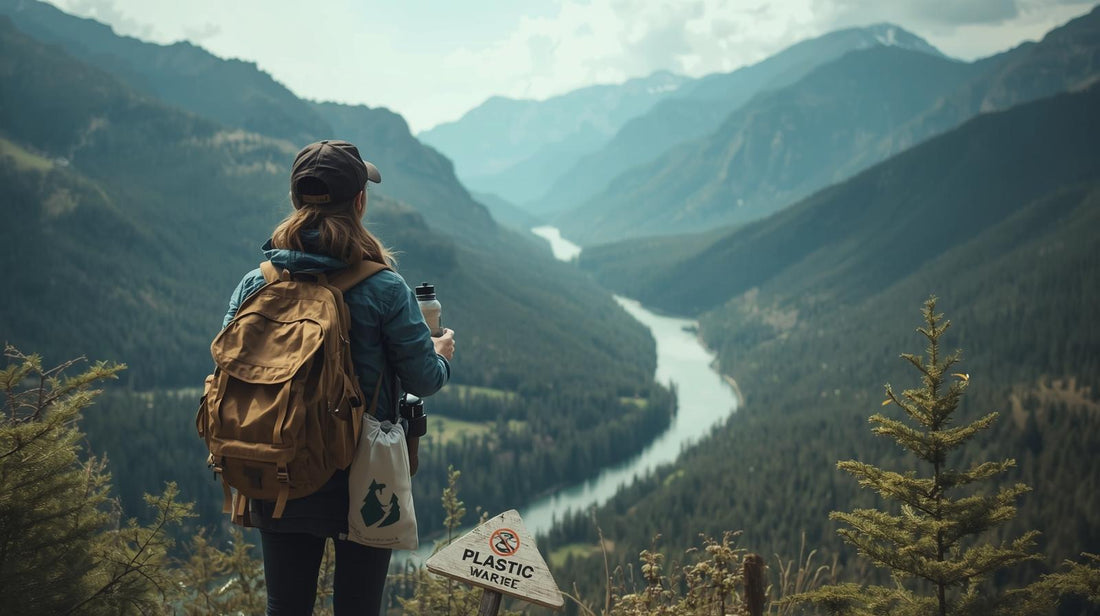
The Ultimate Guide to Responsible Travel in 2025: How to Explore Without Harming
Share
Introduction
Travel has become more accessible than ever in 2025, with budget airlines, online bookings, and digital nomad lifestyles fueling global exploration. But with this growth comes an urgent responsibility: how we travel impacts the planet, communities, and cultures we visit.
From carbon emissions to overtourism, travel leaves a footprint. The good news? By embracing responsible travel practices, we can reduce harm and transform every trip into a force for good.
This guide covers practical, eco-friendly, and ethical tips every traveler should adopt in 2025 to explore the world responsibly while creating meaningful memories.
🌱 What is Responsible Travel?
Responsible travel means making conscious choices that minimize environmental harm and maximize positive impact on local communities. It’s not about giving up travel—it’s about traveling smarter.
Key principles include:
-
Sustainability: Reducing waste, carbon emissions, and overconsumption.
-
Community Support: Prioritizing local businesses and cultural respect.
-
Conservation: Protecting natural landscapes and wildlife.
-
Mindful Experiences: Traveling with awareness instead of rushing through places.
✈️ Responsible Travel in 2025 – Why It Matters More Than Ever
-
Climate change: Tourism contributes to ~8% of global greenhouse gas emissions.
-
Overtourism: Popular destinations like Bali and Manali face environmental strain.
-
Cultural erosion: Unchecked tourism often dilutes authentic traditions.
-
Economic inequality: Big chains profit, while small local businesses struggle.
👉 In 2025, travelers—especially Gen Z and Millennials—are shifting towards eco-friendly travel, local-first tourism, and low-impact adventures.
🌍 Practical Responsible Travel Tips
1. Pack Light & Smart
-
Travel with a minimalist mindset: fewer clothes, multipurpose accessories.
-
Choose sustainable fabrics like organic cotton T-shirts (Khojo tees are perfect as lightweight, durable base layers).
-
Carry reusable items: water bottles, cutlery sets, and cloth bags.
2. Reduce Carbon Footprint
-
Opt for trains, buses, or carpools over short flights.
-
Explore by cycling, walking, or public transport at your destination.
-
Offset unavoidable flights with carbon offset programs.
3. Stay Local, Spend Local
-
Book homestays, eco-lodges, and community-owned guesthouses.
-
Eat at local cafes instead of international chains.
-
Buy handmade crafts from artisans rather than mass-produced souvenirs.
This ensures your money supports the community you visit.
4. Respect Nature & Wildlife
-
Follow the Leave No Trace principle: carry back all your waste.
-
Avoid single-use plastics; carry reusable travel kits.
-
Say no to unethical animal tourism (elephant rides, captive dolphin shows).
-
Stick to designated trails to prevent damage to natural habitats.
5. Travel Slow, Not Fast
Instead of rushing through 10 cities in 5 days, spend more time in one place. Benefits include:
-
Lower transport-related emissions.
-
Deeper cultural experiences.
-
Stronger local connections.
6. Be Culturally Respectful
-
Learn basic local phrases to connect better.
-
Dress modestly in culturally sensitive areas.
-
Participate in community-led tours rather than commercial ones.
-
Be mindful of photography—ask permission before clicking.
7. Digital Responsibility
In the age of Instagram, travel has become performative. Responsible travel means:
-
Avoiding geotagging fragile locations to prevent overtourism.
-
Sharing positive cultural stories instead of stereotypes.
-
Promoting eco-conscious brands and experiences.
🌟 Emerging Trends in Responsible Travel (2025)
-
Eco-hostels & green stays: Solar-powered, zero-waste lodges.
-
Workcations with impact: Travelers combining remote work with volunteering.
-
Community-based tourism: Villages offering authentic cultural immersion.
-
Sustainable gear: Recycled-material backpacks, eco-friendly tents, bamboo travel kits.
-
Digital detox retreats: Mindful, screen-free nature escapes.
🧳 Responsible Travel Packing Checklist
-
Reusable water bottle & filter.
-
Cloth/canvas shopping bags.
-
Organic cotton / sustainable T-shirts.
-
Solar power bank.
-
Eco-friendly toiletries (solid shampoo, bamboo toothbrush).
-
Lightweight rucksack (eco-material preferred).
Conclusion
Responsible travel isn’t a trend—it’s the future. In 2025, travelers are not just explorers but guardians of the planet and its cultures. By making small yet powerful choices—packing light, choosing local, respecting nature, and traveling mindfully—you ensure that the places you love remain beautiful for generations.
At Khojo, we believe responsible travel and self-expression go hand in hand. Whether it’s through eco-friendly travel T-shirts or practical accessories, we want to empower you to travel light, travel smart, and travel right.
So next time you plan a trip, remember: leave only footprints, take only memories.
